A lecturer in Chemistry and a member of the Centre for Sustainable and Circular Technologies, Dr Asel Sartbaeva is a world-leading, award-winning interdisciplinary chemist, combining cutting-edge expertise in mineral physics, crystallography, biology and chemistry to develop emerging and disruptive technologies to address frontier problems in fields as diverse as green energy and global health – agendas of critical importance to women around the globe and, most acutely, post Covid-19 pandemic. Dr Sartbaeva Co-Founded the spinout company, EnsiliTech, following over a decade’s research into technology to make vaccines stable at all temperatures by encasing them in silica – simple sand. This ground-breaking solution to the problem of vaccines 'spoiling' means more people around the world can be saved from vaccine-preventable diseases. Thermostable vaccines were named a priority research area in the World Health Organisation’s Global Vaccine Action Plan 2011-2020. "Our technology promises to be a game-changer for families all over the world – especially those living in remote and impoverished areas.", says Dr Sartbaeva. Removing the ‘cold chain’ refrigeration process has further impact on sustainability by preventing the unnecessary transportation process for vaccines which spoil on route and further reduces vaccine wastage. UNICEF, the biggest distributor of vaccines worldwide, procured more than US$103 million (£84 million) worth of cold-chain equipment and services in 2020. According to research from Imperial College London, cold-chain processes account for up to 80% of the costs of a vaccination programme. A sought-after public speaker at major science, technology and business conventions - such as UNLOCK 2019, Google X Moon shot Conference 2013, The Solutions Summit UN Foundation 2015, Pint of Science 2019 - Asel is, in short, a force of nature, an outstanding and inspiring role model, a tireless advocate for gender equality and game-changing scientist whose work will save the lives of women and children around the world.

5th PLACE
Entrepreneurial Leader of the Year Award
Asel Sartbaeva
5th PLACE Entrepreneurial Leader of the Year Award
University of Bath (University of the Year 2023) - United Kingdom
"Biologicals without refrigeration."
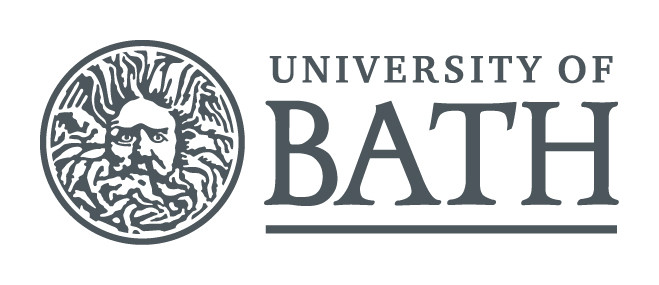
Summary
Acknowledgements
EnsiliTech would like to thank all of our investors: Science Angel Syndicate (SAS), the Fink Family Office, QantX, Elbow Beach Capital, angel investors and Innovate UK. EnsiliTech would like to alo thank incubators that helped during the start up phase: Spin Up Ventures, Changemakers by RSC, FWD by Setsquard, and Enterprise Hub by the RAEng.
Asel Sartbaeva would like to thank the Royal Academy of Engineering for the Enterprise Fellowship and the University of Bath for supporting EnsiliTech.
Images
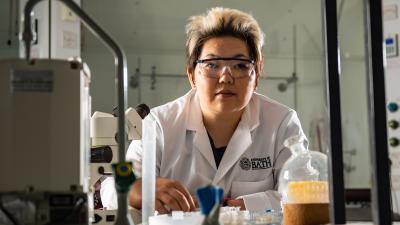
Dr Asel Sartbaeva

Dr Asel Sartbaeva winning Most Innovative Use of Tech for EnsiliTech at The SPARKies Awards 2024
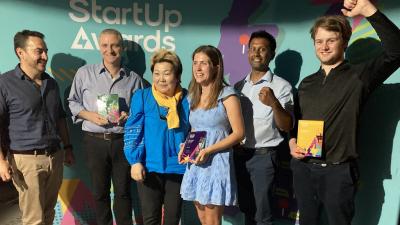
Dr Asel Sartbaeva winning Rebel StartUp of the Year for EnsiliTech at The National StartUp Awards 2023
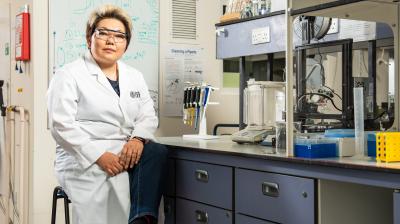
Dr Asel Sartbaeva in her laboratory
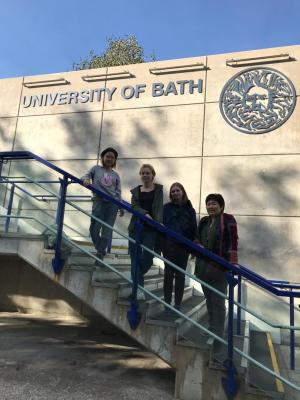
Dr Sartbaeva mentoring the Kyrgyz satellite team as UNICEF Ambassador for the ‘Girls in Science’ programme in Kyrgyzstan
IMPACT STORY
Impacting lifes
Dr Asel Sartbaeva, a world-leading, award-winning interdisciplinary chemist, and her team from the University of Bath, together with Spin Up Science, spun-out EnsiliTech on 21 July 2022 to make vaccines that are safe and stable at all temperatures.
Dr Sartbaeva’s innovation led to her being awarded the Royal Academy of Engineering Enterprise Fellowship for outstanding researchers and won Woman of the Year by Everywoman in Tech in 2021. Her spinout, EnsiliTech, won Rebel StartUp of the Year for the SouthWest at the National StartUp Awards in 2023, and Most Innovative Use of Tech at The SPARKies Awards 2024.
Dr Asel Sartbaeva is a co-inventor of ensilication technology, which she is now commercialising within EnsiliTech - the spin-out she co-founded from the University of Bath. Prior to spinning-out, she conducted research into ensilication after a trip to a doctors in 2010, where she took her five-day old daughter to be vaccinated. After seeing that the vaccine was taken out of the fridge, she started researching why vaccines have to be stored refrigerated. She was horrified by finding out that more than 50% of the vaccines spoil because of cold chain problems and that 1.5 million infants are dying every year because they are not vaccinated in time.
After 11 years of university research, numerous grants, three PhD students, publications, three patents, and numerous awards, she decided it was time to spin-out to make sure that the technology is taken from the lab to the market.
LEARNINGS
Lessons learned
Dr Sartbaeva was born in Kyrgyzstan - then part of the Soviet Union – and overcame early family resistance to study science at school, determination that would take her to study Natural Sciences at the best university in Kyrgyzstan, twice winning the National Student Olympiad in Materials, and becoming the first ever female winner of this category and the only Kyrgyz female undergraduate in her undergraduate course.
She later won a postgraduate scholarship to the University of Cambridge and, in 2004, became the first Central Asian Cambridge Doctoral graduate. She followed this achievement with postdoctoral research in the USA, returning to the UK in 2007 to a prestigious Glasstone Fellowship in Oxford, and in 2010 she won a Royal Society Research Fellowship.
Dr Sartbaeva is now the UNICEF Ambassador for the ‘Girls in Science’ programme (https://www.unicef.org/kyrgyzstan/girls-in-science) in Kyrgyzstan, where during the 1st phase, 2700 girls participated in the mentoring program. Four hundred 16-17-year-old girls took extra preparatory classes to enrol into higher education. Almost all of them successfully enrolled into higher education, with 61% choosing STEM major subjects.
In the UK, Dr Sartbaeva was named one of the 175 Faces of Chemistry by the Royal Society of Chemistry for her diversity work and won the WISE World award 2017. She was called “symbol of resistance to sexism in Kyrgyzstan” by Global Voices in 2017.
She works not only to attract more girls into STEM subjects, but to drive a lasting culture shift for women and ease the path for future generations.
FUTURE PLANS
What's coming?
EnsiliTech’s aspiration has always been to make the transportation of vaccines and other life-saving biological materials more efficient and cost-effective, while also reducing the
carbon footprint of this critical supply chain.
EnsiliTech raised £1.2 million in pre-seed funding to refine their technology for storing vaccines without refrigeration. The funding round was led by Science Angel Syndicate (SAS) and the Fink Family Office with co-investment from QantX, Elbow Beach Capital, angel investors and Innovate UK.
Despite only spinning out in 2022, EnsiliTech is already working with an EU based vaccine manufacturer on thermal stabilisation of their three novel vaccines and currently in talks with several other vaccine developers and manufacturers. Further work is ongoing on the development of a first ensilicated thermally stable mRNA vaccine, where EnsiliTech is working in partnership with to other companies.
EnsiliTech plans to apply the technology on animal and human vaccines in the near future, and then on therapeutic antibodies, including cancer treatments and personalised medicines. Many antibody treatments are only available in Westen countries due to both their high production costs and requirement for -80C ultra-cold-storage. With lack of the ultra-cold-storage in most developing nations, those therapeutics and medicines are affectively unavailable.
EnsiliTech’s technology is a huge leap forward. Dr Sartbaeva says: “Our initial focus will be on oral animal vaccines, and we’re hopeful that we’ll have a finished product within two years. After that, our full attention will be on human vaccines and therapeutic antibodies”.

